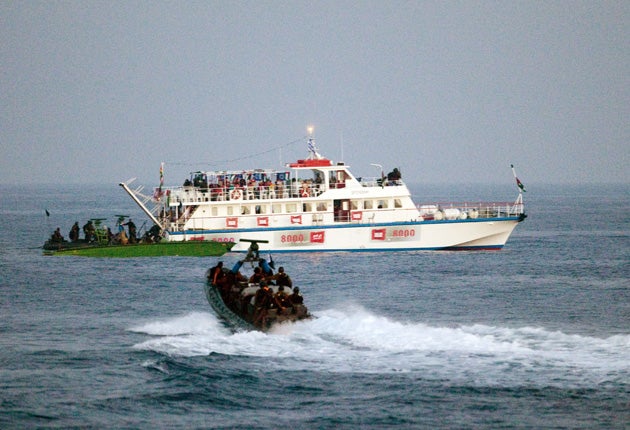Flotilla deaths were a 'mistake', says IDF report

The killing of nine Turks in a raid on a Gaza-bound flotilla last month followed intelligence and planning "mistakes", according to an Israel Defence Force (IDF)-commissioned report.
At the same time, the report – full details of which are not being published – defends the use of live ammunition by commandos and congratulates them on their "professionalism, bravery and resourcefulness" during the operation on board the Mavi Marmara.
The deaths, 70 miles from the Gaza coast on 31 May, provoked international outrage and led to unprecedented pressure on Israel to ease the four-year-old siege of the territory the flotilla had tried to break.
Without assigning responsibility, an enquiry committee led by Giora Eiland, – a former head of the National Security Council – says that errors of intelligence led the Israeli navy to underestimate the scale of resistance offered by a hardcore minority. This group of between 65 and 100 aboard the Turkish vessel, it said, used knives, chains and metal bars to attack the troops.
The report also criticises the navy for not preparing for scenarios other than a relatively peaceful takeover and for failing to reassess its tactics when it became clear that it was facing a violent reaction.
Maj Gen Eiland told reporters yesterday: "To my relief, the investigation found no negligence or failures on any significant matters; that it was due to mistakes made at the relatively top levels that caused the results to be different from what was planned."
He did not name any specific commanders – including head of the navy Eliezer Marom, who took personal charge of the operation and was at sea with the naval vessels.
The IDF, while acknowledging the criticisms contained in the report, said that it "determines that the use of live fire was justified and that the entire operation is estimable". The British Palestinian Solidarity Campaign described the report as a "whitewash".
The report says that, in at least four cases – but possibly as many as six – there was live fire on the troops by passengers and that in one case a 9mm bullet found in the knee of a commando was evidence that there were arms on board, other than ones which had been stolen from soliders.
The report added there was a "high probability" that the first shot was fired by a passenger, rather than by troops, although an official familiar with the report acknowledged yesterday that the enquiry team could not be "100 per cent sure" this was the case.
Troops were said to be under instruction to use live ammunition only if their lives were in danger and the official said that the enquiry had found that they only did so when they were directly threatened or when they were seeking to secure other soldiers or take care of the wounded.
According to the report's narrative the speedboats, which had come alongside the Mavi Marmara twice, withdrew while troops landed by helicopter on the upper deck. The decision to board was only taken when it became clear that three commandos from the helicopters had been captured. At this point troops from the boats opened fire in an operation to "clean" the decks of resisting passengers, the official said.
The report says the Turkish humanitarian group IHH – which Israel accuses of links to Hamas and of planning attacks on its soldiers – at one point took control of the ship.
The enquiry team had no remit to address the political decisions to halt the ships by force or to impose the blockade in the first place. A second enquiry, headed by a former Supreme Court judge, may consider the broader political context of the raid.
Join our commenting forum
Join thought-provoking conversations, follow other Independent readers and see their replies
Comments
Bookmark popover
Removed from bookmarks